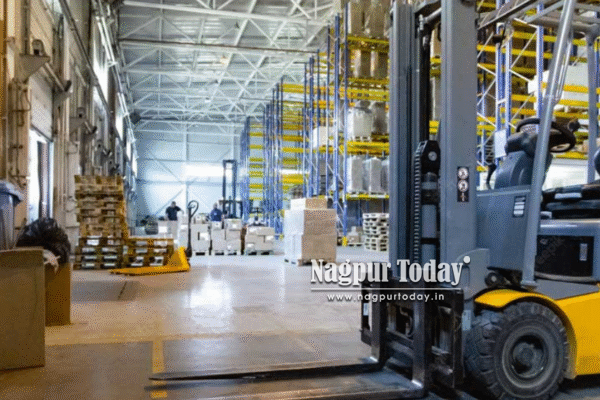
In a warehouse where storage density, faster turnaround, and minimal downtime matter, choosing the right equipment—whether a pallet truck or forklift—is essential. Renting can be a smart decision, as it removes the burden of upfront investment while giving you access to the latest technology at predictable costs. Whether you manage a small warehouse or a large fulfilment centre, your choice of equipment rental influences every aspect of operations, from labour planning to layout design. This post shares practical tips to help you rent the right equipment for maximum productivity and control.
Understand Your Warehouse Needs
Before contacting a rental provider, take a clear look at your warehouse operations.
- Identify pain points such as slow picking, limited lifting height, or poor manoeuvrability.
- Assess your available space, racking systems, and floor conditions.
- Decide on indoor or outdoor use, as this affects equipment type and tyre requirements.
If most of your material involves ground-level movement, pallet truck rental is likely the ideal fit. On the other hand, high-rack picking and order fulfilment may require reach trucks or articulated forklifts.
Consider the Type of Equipment
The right equipment depends on what your operations demand. Here are common types of rental equipment:
- Pallet Trucks: Ideal for horizontal pallet movement, loading docks, and floor stacking.
- Reach Trucks: Designed for narrow aisle navigation and lifting pallets to high racking systems.
- Order Pickers: Suitable for split case picking and high-throughput operations.
- Articulated Forklifts: Provide both reach and counterbalance functionality, ideal for tight spaces.
If your warehouse uses selective pallet racking or drive-in racks, a reach truck operator will need appropriate training and certification before use.
Evaluate Load Capacity and Specifications
Every piece of equipment has different technical limits. Check the following before confirming a rental:
- Maximum load capacity per lift
- Fork width and length to suit your pallet sizes
- Turning radius for indoor aisles
- Power type: battery-operated or diesel, depending on your use case
For instance, a battery-powered pallet truck is better suited for indoor warehousing and cold storage environments, while diesel models are more suitable for outdoor yards.
Check Operator Compatibility and Training
A key consideration is who will operate the rented equipment. Using advanced tools like reach trucks or articulated forklifts requires trained professionals.
Confirm if your warehouse already has a reach truck operator available. If not, ask the rental company if they provide operators on short-term contracts. Ensure operators are familiar with local safety standards and the features of the equipment.
Flexibility and Duration of Rental
Your rental plan should match your business cycles.
- Short-term rentals are ideal during seasonal peaks or project-based operations.
- Long-term rentals offer cost efficiency for year-round operations.
Consider reliable companies like Godrej RenTRUST that offer flexible rental terms. This allows you to scale up or down depending on workload without financial stress.
Evaluate Equipment Condition and Maintenance
Never rent equipment without confirming its condition and maintenance history.
- Ask for service records to ensure reliability.
- Inspect tyres, batteries, hydraulics, and brakes before use.
- Ensure that maintenance is included in the rental agreement.
Leading providers ensure their pallet truck rental services include scheduled maintenance, safety checks, and on-call support, keeping your operations running smoothly.
Plan for Infrastructure Compatibility
Your warehouse layout plays a big role in selecting rental equipment.
- Measure aisle width and racking height.
- Avoid equipment that is too wide or has a poor turning radius for your setup.
- Check floor load capacity before using heavy-duty machines.
Compact equipment is ideal for high-density spaces. For example, electric pallet trucks with operator platforms are perfect for third-party logistics (3PL) and retail warehouses where space is tight.
Look for Advanced Safety Features
Safety should never be compromised, especially in busy warehouses.
- Choose equipment with anti-roll and fail-safe braking systems.
- Prioritise models with ergonomic handles, visibility aids, and audible alarms.
- Ensure operators have PPE and are familiar with emergency protocols.
Modern battery-operated trucks include anti-pinning buttons and operator platforms, adding to operational safety during continuous shifts.
Consider Cost vs Value
Cost is a factor, but long-term value is more important.
- Compare rental quotes, but check what’s included.
- Confirm whether servicing, breakdown cover, and upgrades are part of the deal.
- Check if the equipment supports faster cycle times or fewer labour requirements.
Choosing low-cost, older machinery often leads to hidden costs such as delays and frequent maintenance. Opting for premium rental services can offer better value by reducing errors and improving overall productivity.
Match the Rental to Your Industry Needs
Different sectors have unique requirements. Make sure the equipment you rent meets your operational goals.
- E-commerce: Fast order picking and narrow aisle navigation
- Pharma: Clean operations and high hygiene standards
- FMCG: Frequent loading/unloading cycles with tight turnaround times
- Cold Storage: Electric trucks that handle temperature variations
Leading rental equipment providers cater to a wide range of industries with reliable equipment, quick delivery, and flexible contracts to meet seasonal and project-based demands.
Conclusion
A well-planned pallet truck rental strategy can make all the difference in warehouse efficiency. By choosing the right equipment for your space, load type, and industry needs, you reduce operational risks and increase throughput. Assess your infrastructure, staff skills, and usage patterns before finalising a rental. If specialised operations are involved, confirm that a trained reach truck operator is on board. With the right rental partner, you can focus on running your operations instead of worrying about equipment, keeping your warehouse moving efficiently.














